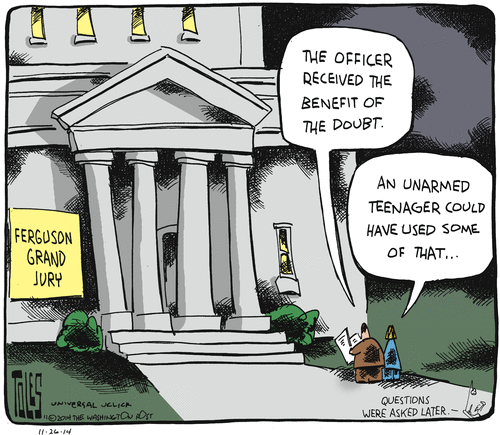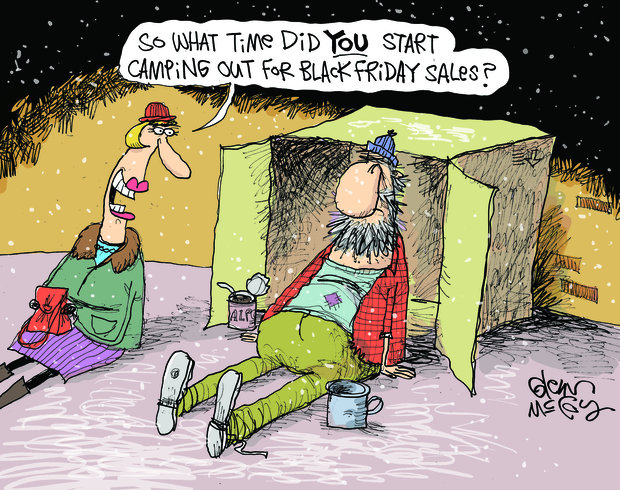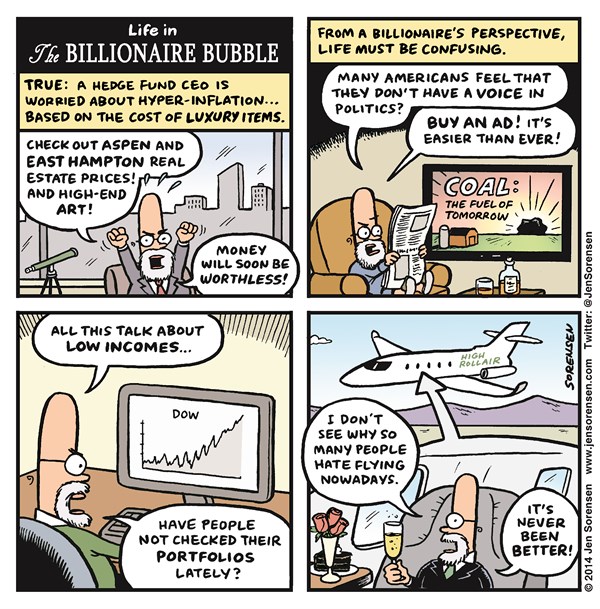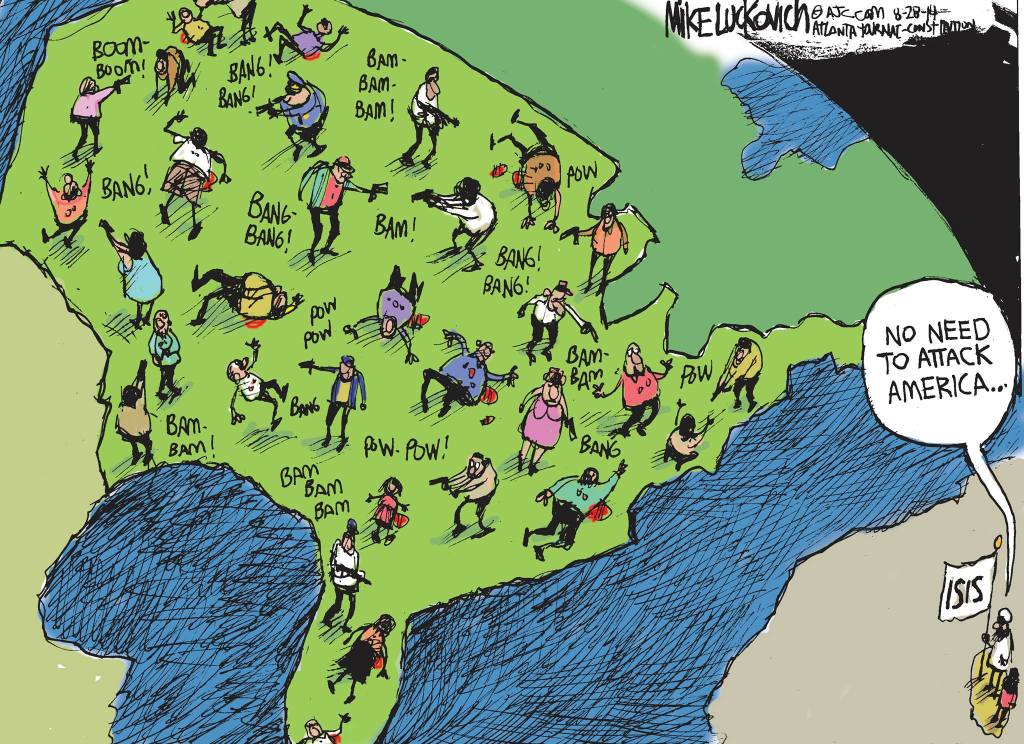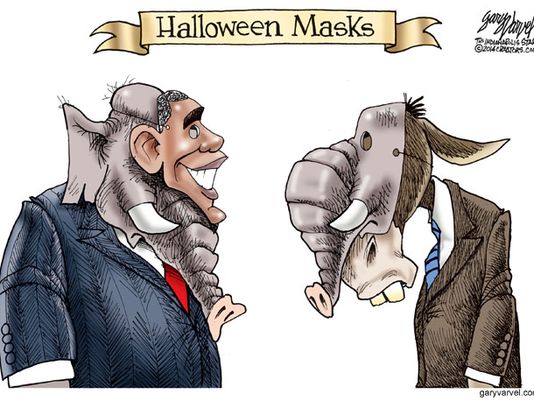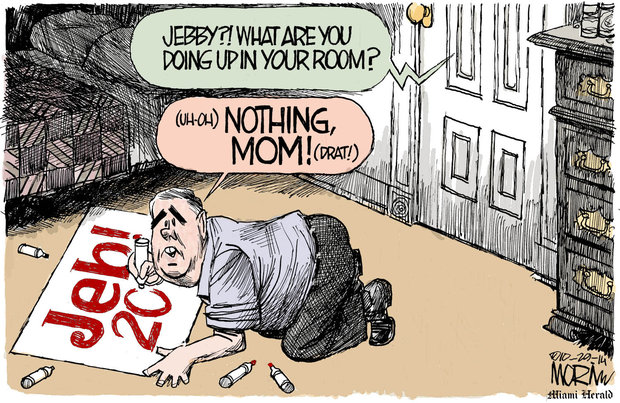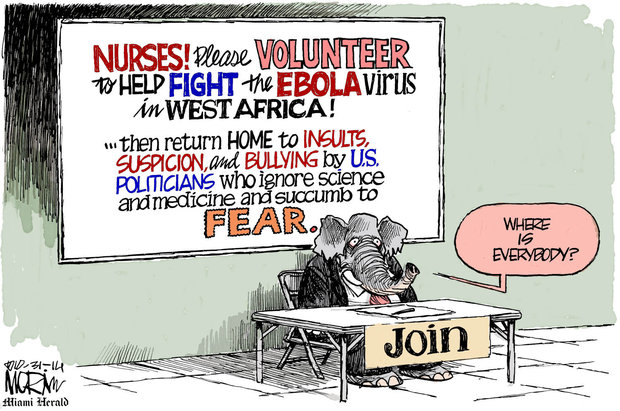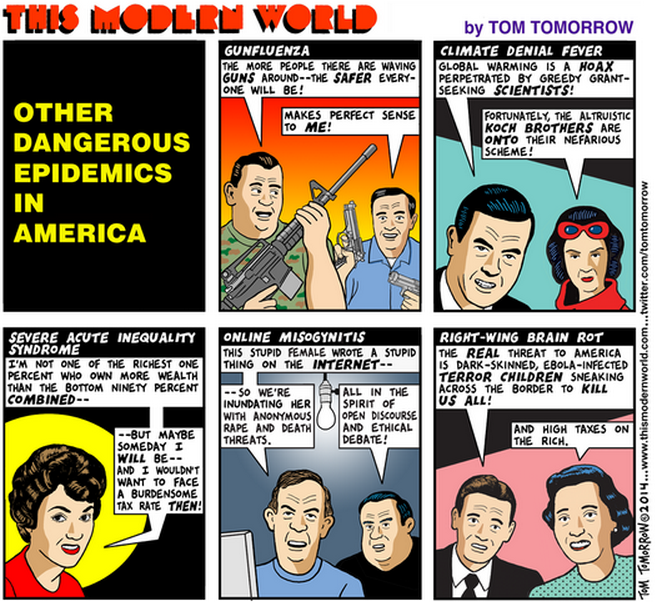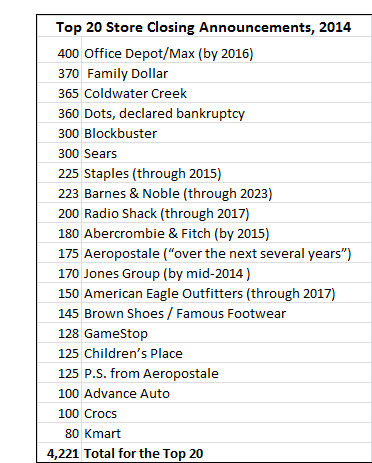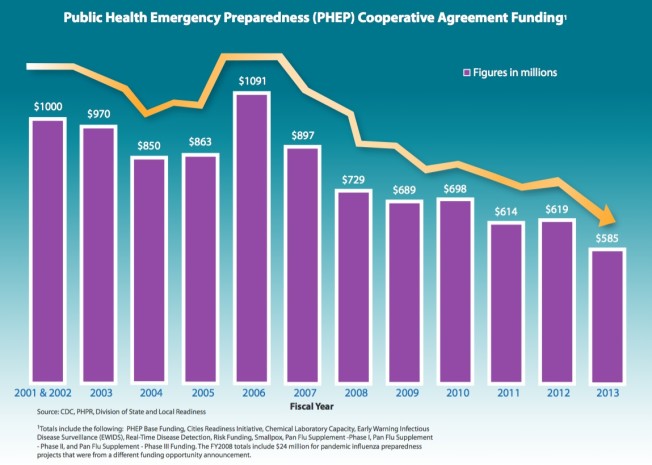“To conquer fear is the beginning of wisdom” – Bertrand Russell
Today, we are going to take a short course in The Big Picture. For starters, here is a quote from Digby:
…we are a primitive country. We’ve got idiots on TV screaming about a religion of 1.6 billion people being the toxic cause of violence even as our All American, non-religious school-kids are taking the deadly weapons their parents give them as presents to shoot their schoolmates and themselves. And we have the most sophisticated city on earth acting like a bunch of authoritarian creeps toward people who are doing serious work to stop the spread of an outbreak of a deadly disease — for PR purposes.
Since the Great Recession in 2008-9, we have seen the Federal Reserve move the economy slowly forward while leaving most people behind. Yet, few complain about growing income inequality. People know it and feel it, but don’t vote, or try to do anything else to change things.
• Why doesn’t income inequality upset the average American?
• Why are we more aware of how plastic surgery has changed the looks of an actress than we are about Gen. John Allen’s crazy ideas about winning the war against ISIS?
• How can more Americans be afraid of contracting Ebola than being killed in a car wreck?
What are we afraid will happen if we really dig deeply into an idea or a strategy that is proposed as a “solution” for some problem or other? Why can’t we resist re-tweeting some piece of snark that is the short version of something we believe, or thought we believed?
One visible trend is our increasing distrust of public institutions. We have seen how government, corporations, “charitable” organizations, media, and law-enforcement and the Justice system, all seem to exist for the benefit of those who manage them and not for the public.
This capturing of our institutions is a scary thing, but it is true everywhere in America. You might think that realizing this would spur interest in reform, but in fact, it has just increased our denial. People say in spite of it all, we’ll just soldier on as best as we can, making sure that we and our kids learn to navigate this rigged system.
This is why there is very little interest in politics by young voters.
Another trend is that America’s young know there is no possibility for real growth in personal income. They know that there are policies to promote and stimulate the economy, policies that might work. But, they have no faith in the ability of public officials to implement such policies, so they hang back, hoping somebody comes forward with a better answer. This, from the most connected, most media-savvy, most sophisticated generation in our history.
Voters show no interest in the 2014 mid-term elections. The media asks the same questions of the same Sabbath pundits each week: “Who will win the Senate?” But people don’t care. They watch the media whip up class warfare, cultural warfare and real warfare together into a big stew of propaganda that becomes mind-numbing. So they Facebook, and Tweet.
Most people are both stuck and scared–wanting things to change, but not knowing how. People might get upset, but big change requires commitment and action, and it is hard to get Millennials to change their minds, or to do much.
Political activism succeeds with a clear vision and a solid game plan. Neither Democrats nor Republicans have a list of good ideas about what will work to move us forward. It is possible to attribute political apathy to this lack of ideas, but the destruction of public trust in government is also a big problem.
Changing the future requires getting hold of the levers of government and then using them to do good. That is much more difficult when people don’t vote, and have no faith in their government. Trust in an institution takes a long time to build, but not to destroy. The first step is to take back our captured government.
A basic principle of martial arts is that you use your opponent’s strengths against them. In typical political contests, both sides work to out-raise and out-spend the other. And third parties try to get in the game using the same strategies as the legacy parties.
Today, each candidate is challenging the other’s strength using their own similar strength: It becomes a Sumo-style shoving match.
Conventional wisdom says that it’s expensive to run a campaign (even for local elections, much less national) and so everyone starts their campaign with a fundraising strategy and continues it incessantly even after Election Day. Conventional wisdom says you win with a charismatic candidate, so each party tries to find the best actor they can come up with. Conventional wisdom says candidates should “triangulate” their political views so that they are neither left nor right, just as Democrats are trying to do without success, in Red States this fall.
Instead, insurgent campaigns could be run on social media and the Internet, on as little money as possible—crowdsourcing both dollars and ideas from supporters. They should build constituencies for ideas and for a common future. They should select candidates who can tell the story of a united, desirable future, not some Ken or Barbie cypher for the moneyed interests who run our politics today.
The Big Picture is that we react more strongly to fear than to rationality. We used to fear Hitler. We feared the Communists. We feared al-Qaeda. We fear ISIS. We fear Ebola. We fear for our kids walking to school. We fear that America will let too many brown people across our borders. But we don’t fear climate change, or obesity, or a Congress that can’t enact an agenda to move the country forward.
There should be no mystery about how much corporate power and money drives the culture of fear. Think of it as a 4-step program:
1. Mass media hammers on events that builds general concern and possibly, panic from a few isolated incidents
2. Anecdotal evidence takes the place of hard scientific proof
3. Experts that the media trots out to make comments really don’t have the credentials to be considered experts
4. Entire categories of people (Muslims, West Africans) are labeled as “innately dangerous”
Can a cohesive group with a better way of dealing with the rest of us, gain traction in today’s connected world? Can they help America conquer the long laundry list of fears that constrict and in some cases, stop us from acting on much of anything?
It would take brains, ideas, commitment and energy.
Where are the leaders who have those qualities? How can we support them?


